How to Build a Founder Network
Here's my tips on how to build a network of founders. If you're an early-stage founder, surrounding yourself with other sharp entrepreneurs is a tremendous competitive advantage.

Recently, a friend and former coworker of mine left Google to start his own company. He’s in the stage that I fondly call “the abyss”: the lonely early days of a new venture where you’re trying to find an idea with some traction and searching for direction.
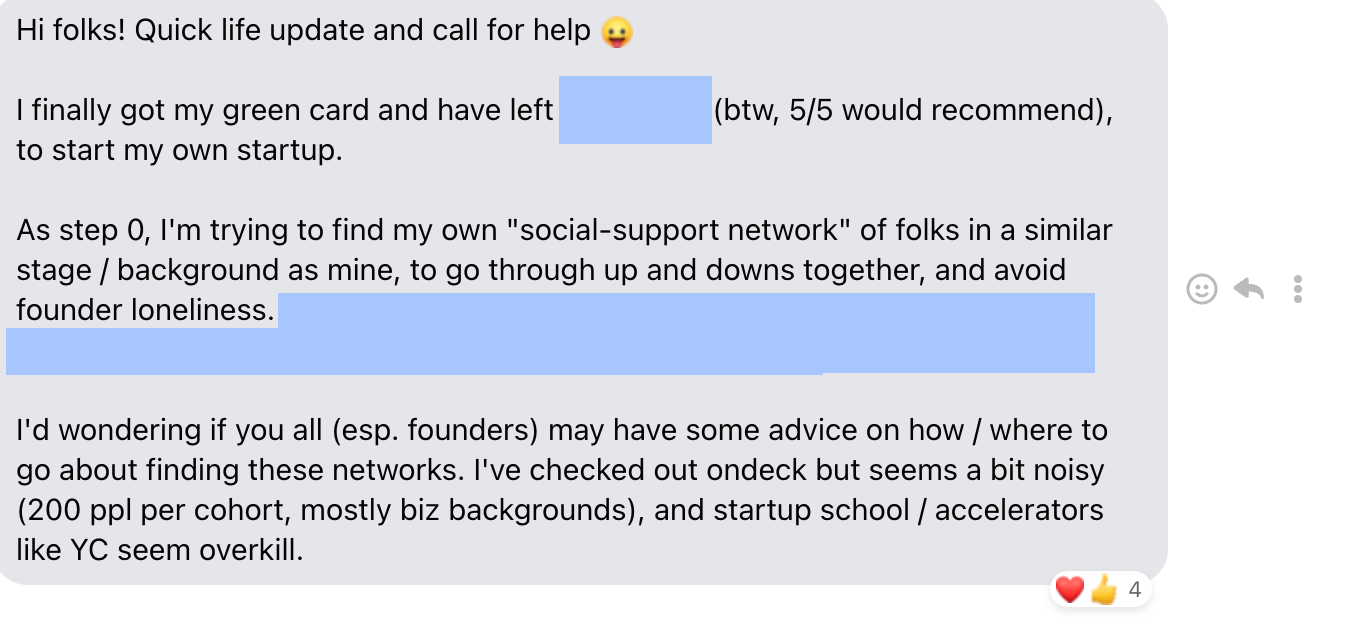
It’s the second message I’ve gotten in a month on this same topic. Another entrepreneur in Dallas (my hometown) messaged me for advice on joining founder communities:
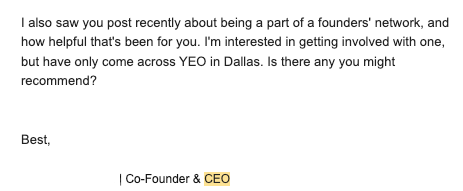
I’m the cofounder / CEO of a startup based in SF called Kapwing. When my cofounder and I were in the abyss back in 2017, we leaned on a network of entrepreneurs to get through the uncertainty, support us emotionally, and give us tactical advice. Other founders counseled me on fundraising, encouraged us not to give up when we were down, and celebrated small wins with us.
Now, that we’ve raised more than $12M for Kapwing and grown our team to 36 people, we continue to expand on our community for insight and meaningful connection. It turns out that “the messy middle” is lonely also, and my founder tribe continues to be an essential support system for me in my work. I got advice from other entrepreneurs about firing our first employees, writing investor updates, managing offshore engineers, running paid ads, managing corp dev conversations, and many other decisions.
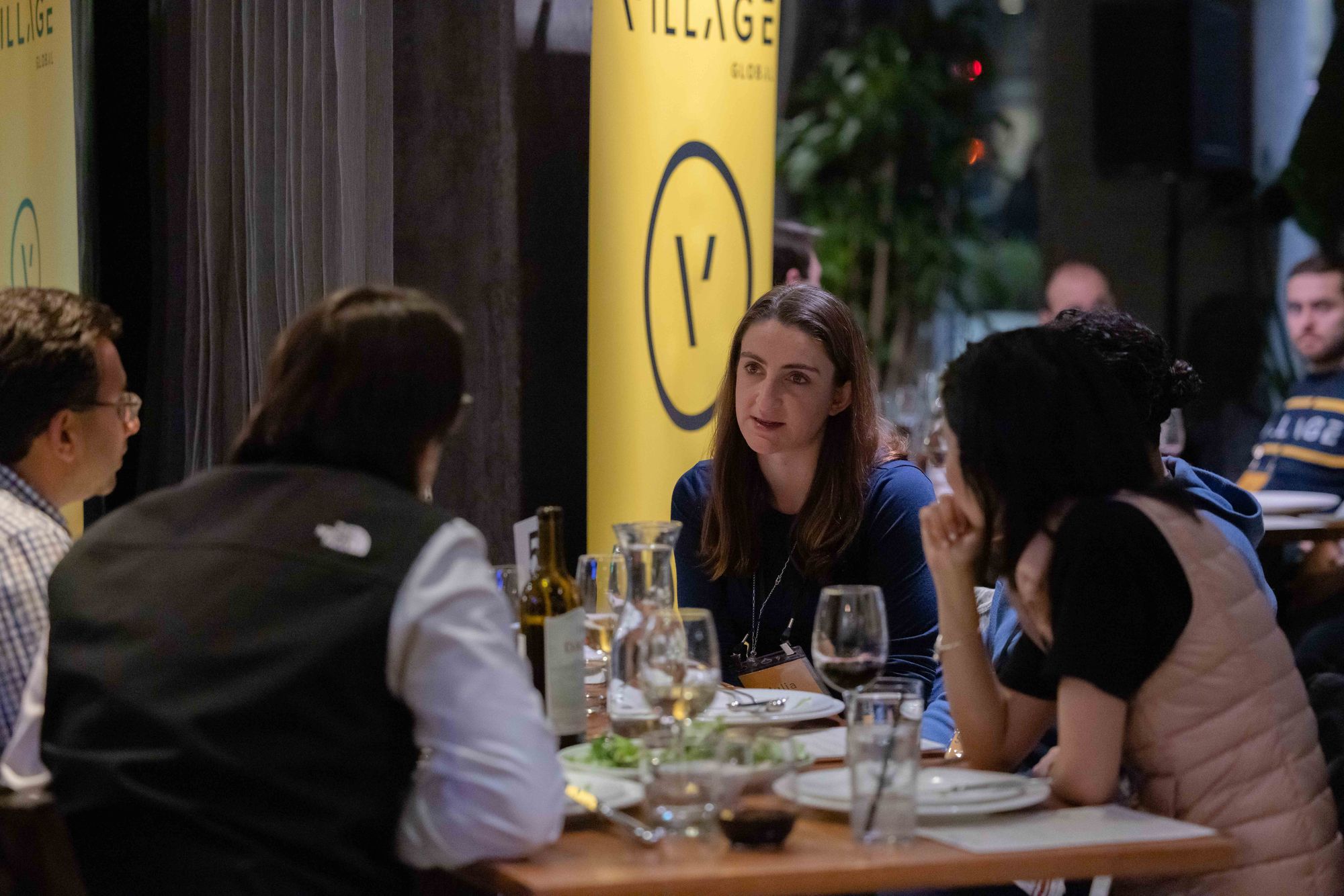
In this article, I wanted to publish my tips on how other entrepreneurs can find community. Of course, I’m lucky to live in San Francisco, had a Stanford and Google-based network to start off with, and benefited from other advantages that made it easier to connect with others. But I also invested a lot of time into building connections, and I believe that a founder can invest in building a network no matter who they are or where they live.
#1) Coworking Spaces
Our first founder communities came from the places we worked out of. In the early days, while we were exploring ideas, a friend of ours kindly allowed us to work out of spare desks in his office space. With a coffee machine, clean desks, and hard-working finance professionals nearby, our first work space upleveled the professionalism of our work and lent structure to our days. We befriended some of the associates at the firm and got early feedback on our business from smart outsiders.
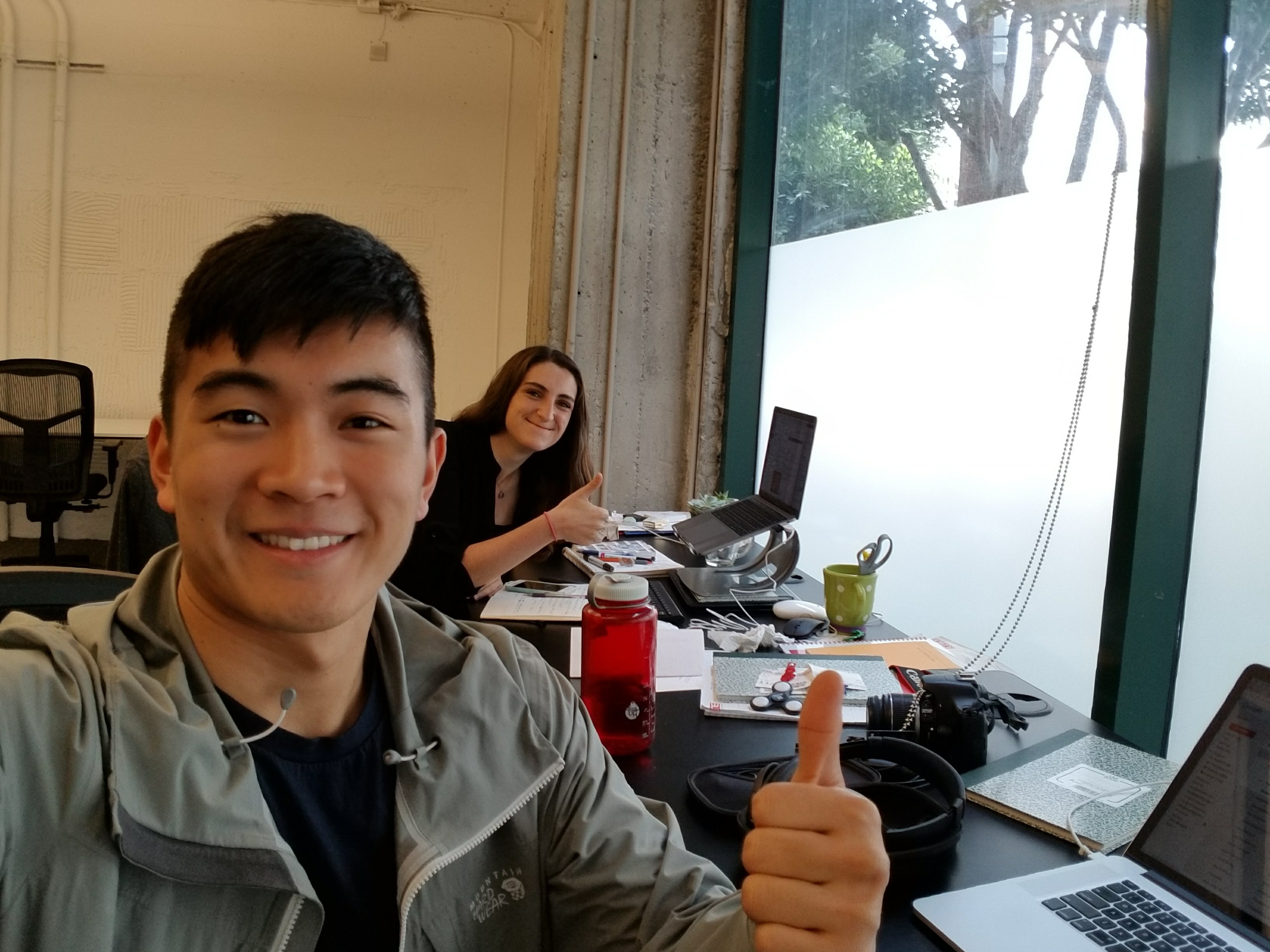
After we used up the hospitality of our friend (they asked us to start paying them rent, so we realized we’d overstayed our welcome), we moved to a startup coworking space out of Samsung, a program called SamsungNEXT. SamsungNEXT’s incubator was equity free with amazing perks. We met several great founding teams there -- Deon and Sami at Forethought, Sam at Fireflies.AI, Zack and Varun at Tetrate, Ian and Karl at Tonic.ai -- who became our good friends. It was the ideal place to work from while we were closing our seed round and recruiting our first employees.
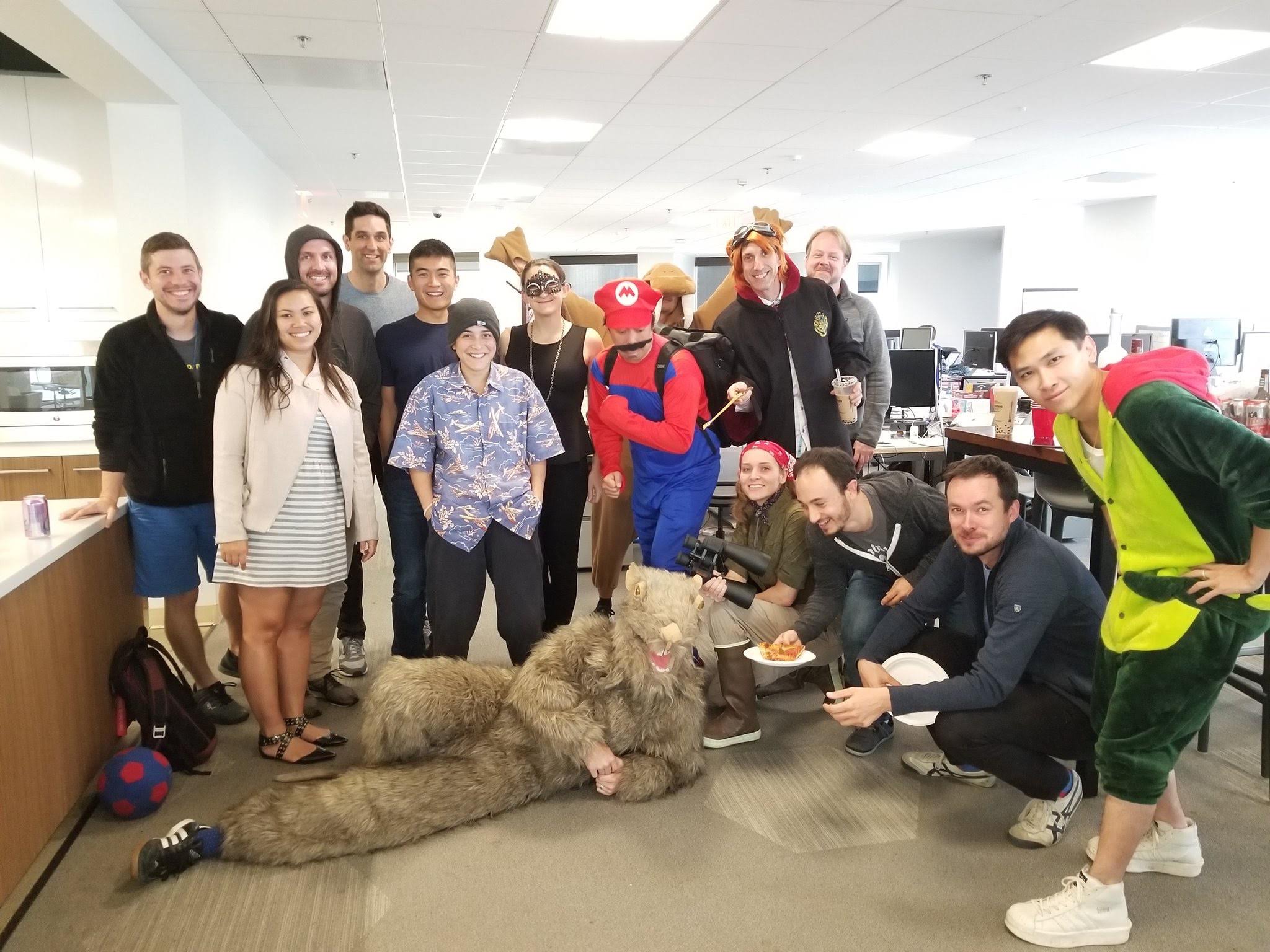
After we raised money, we decided to lease a pod of desks in a startup space called Founders Den rather than getting our own building or walled-off office. Run by four serial founders including Jonathan Abrams of Friendster, the Founders Den prided itself as an early home for hot startups and leased desks at-price. Through the Founders Den events and natural serendipity, we met the neighboring startups and great founders including Michael Ellison of CodePath and Kurt Spindler of Debtsy.
Takeaway: When you’re getting started, the easiest and cheapest thing to do is work out of your bedroom. But having a professional coworking space gives you more opportunities to meet people and get feedback + advice. Consider asking a friend for spare office space or renting out shared space for more serendipitous connection and community.
#2) Investors
Even when you’re bootstrapping, getting to know local investors can help you get access to the startup ecosystem in your town. For us, many investors who turned us down still included us when hosting events for early-stage startups, which helped us connect with other founders. For example, First Round Capital hosted this awesome DRF Female Founders event that I got to attend. M13 and Index included me in small, intimate dinner parties, even after they turned us down. I loved these events and made good connections.
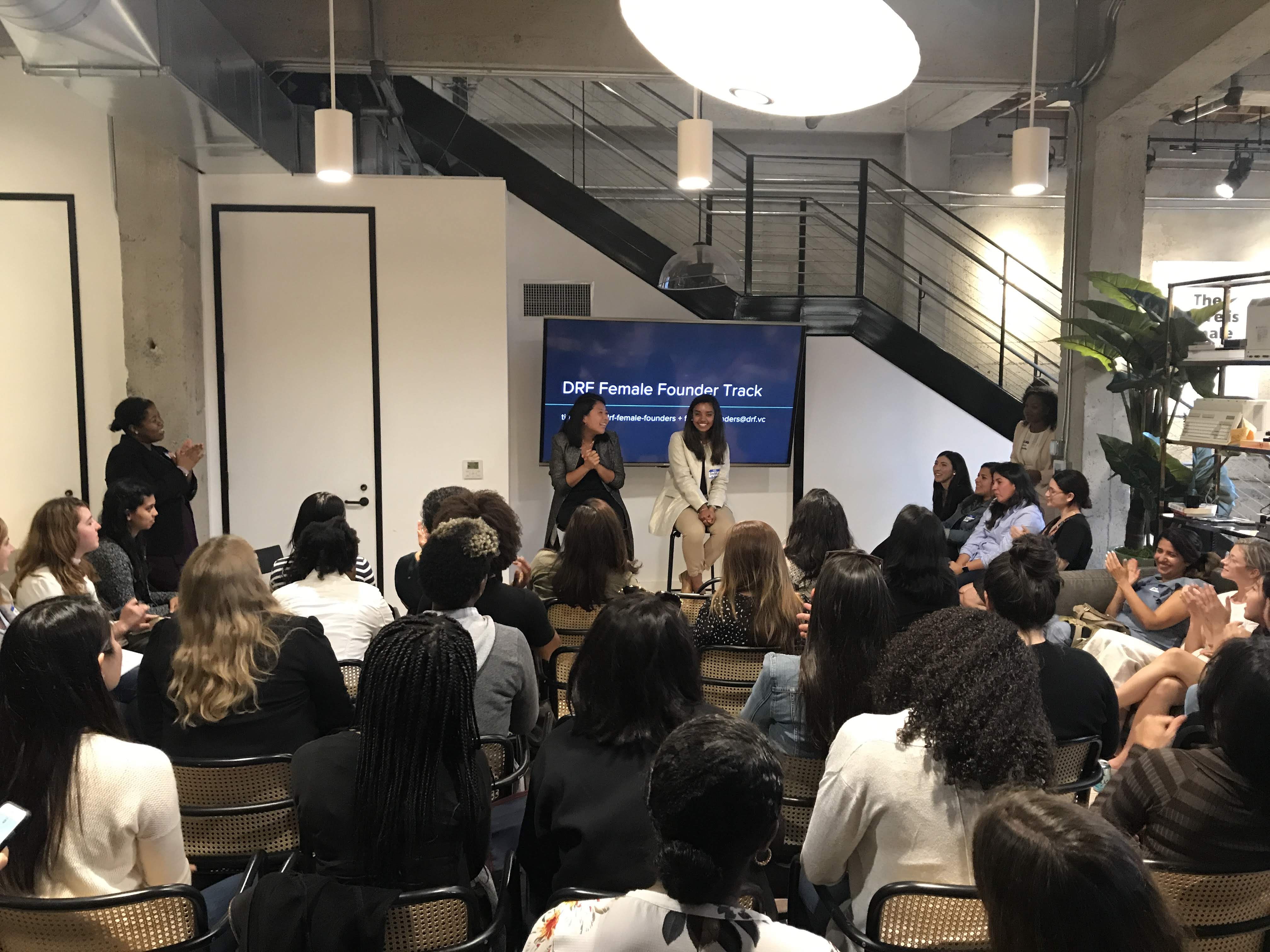
So how do you meet investors? When Eric and I started out, we had the same question ourselves. We sat down and made a list of every person we knew who might know a venture capitalist, including distant family friends, old fraternity brothers, a former professor, and Twitter acquaintances. Then, we reached out to every person on the list with a casual invite to coffee. This led to dozens of warm welcomes to VCs, people that would eventually become our investors and advisors. Of course, there is a ton of luck and privilege in this strategy, but there’s also courage and hard work that goes into putting yourself out there.
Meeting investors helped us build out our founder community. Some angel syndicates host regular events for investors to meet early-stage startup founders. We went to events hosted by the Xoogler community and some AngelList investors, some of which eventually led to checks from angel investors. We met some of our best founder friends - like Ben and Carlos at DownDog - at pitch events.
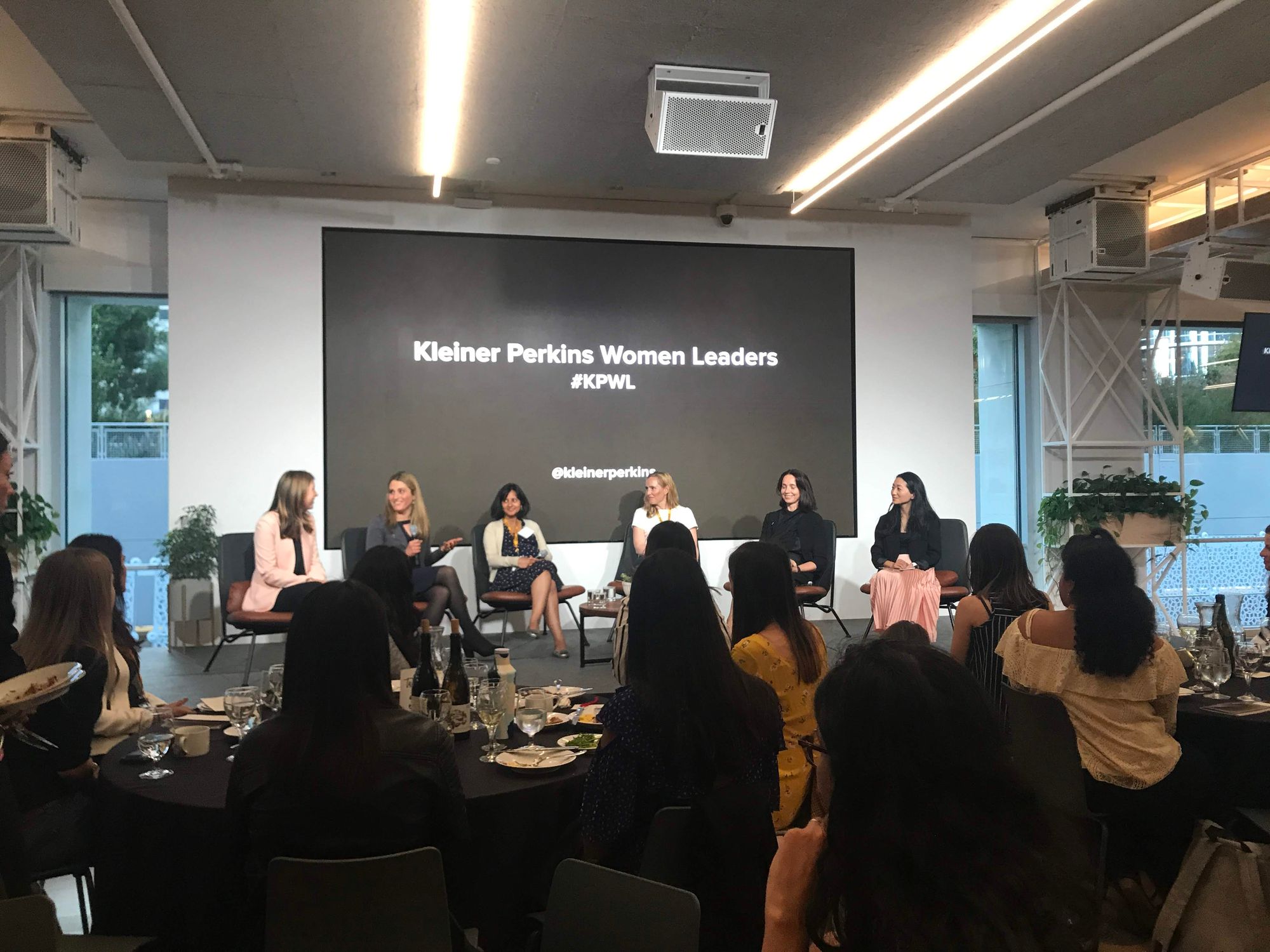
Now that we raised money, some of our investors have contributed a lot to my founder tribe. Kapwing’s investors have introduced us to other founders, included us in founder-centered events, and nurtured online forums for their portfolio. Village Global does an excellent job of this, hosting dinners, speaker series, and an annual retreat designed to help their network connect to each other. I’ve met many brilliant people - Andy Coravos at HumanFirst, Vance Roush at Overflow, and Blaine Hatab at Distru - who have been good friends to me and sparked great ideas for Kapwing. Kleiner Perkins and CRV, the major firms who led our financing rounds, also hosted great events pre-pandemic. Now, in 2022, some of these in-person events have resumed.
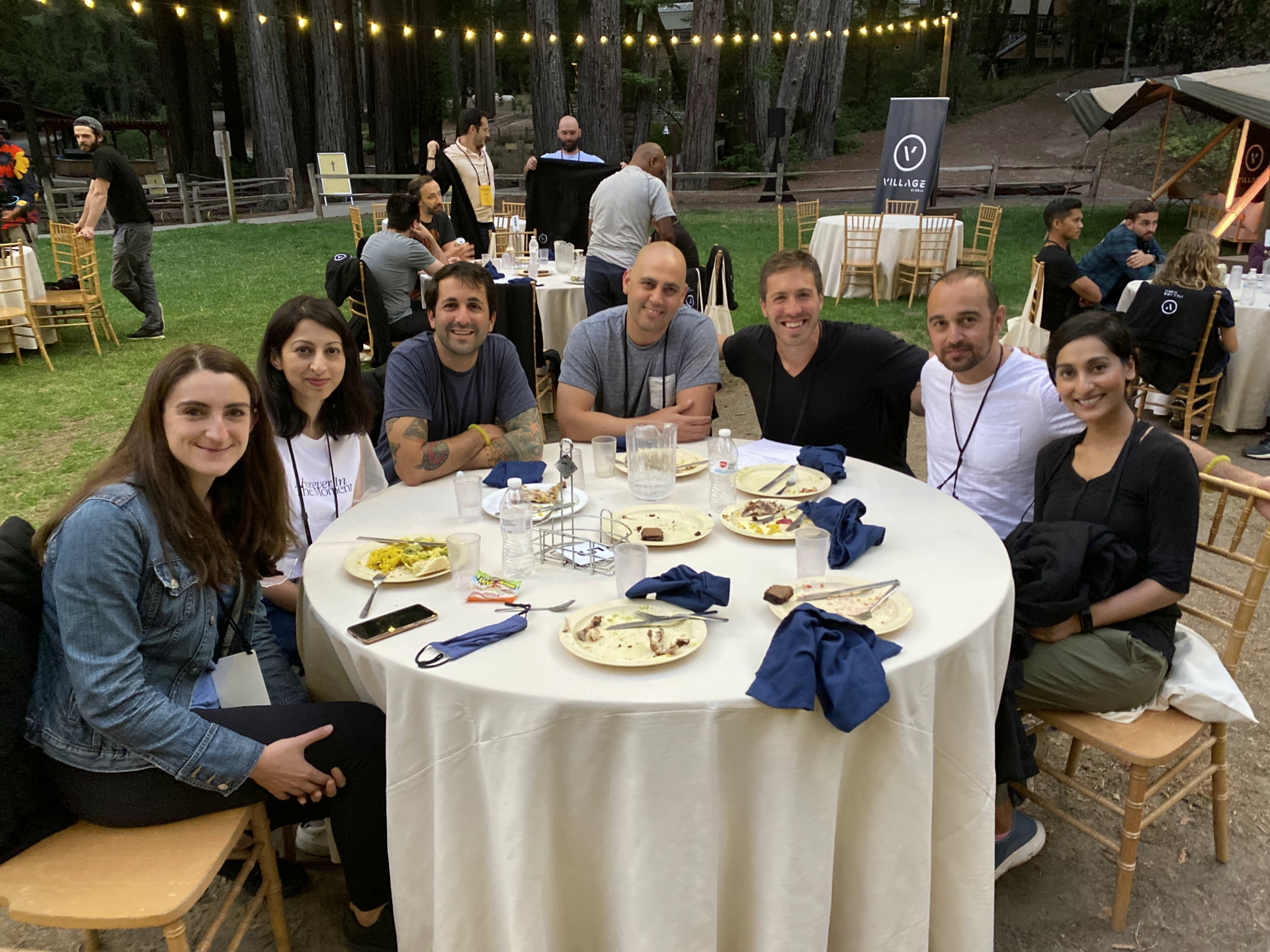
#3) Accelerators
YCombinator is the most selective accelerator and immediately connects you to hundreds of other founders in the same stage as you. 500 Startups and TechStars also have solid peer groups for founders, although they’re less impressive given that those accelerators are less selective compared to YC.
Eric and I didn’t want to give away equity early on, so we did StartX, a zero-equity accelerator for Stanford-affiliated founders, instead. We met several talented entrepreneurs in our StartX class who were farther along than us, including Cliff Weitzman of Speechify and Brice Gumpel of Seated.
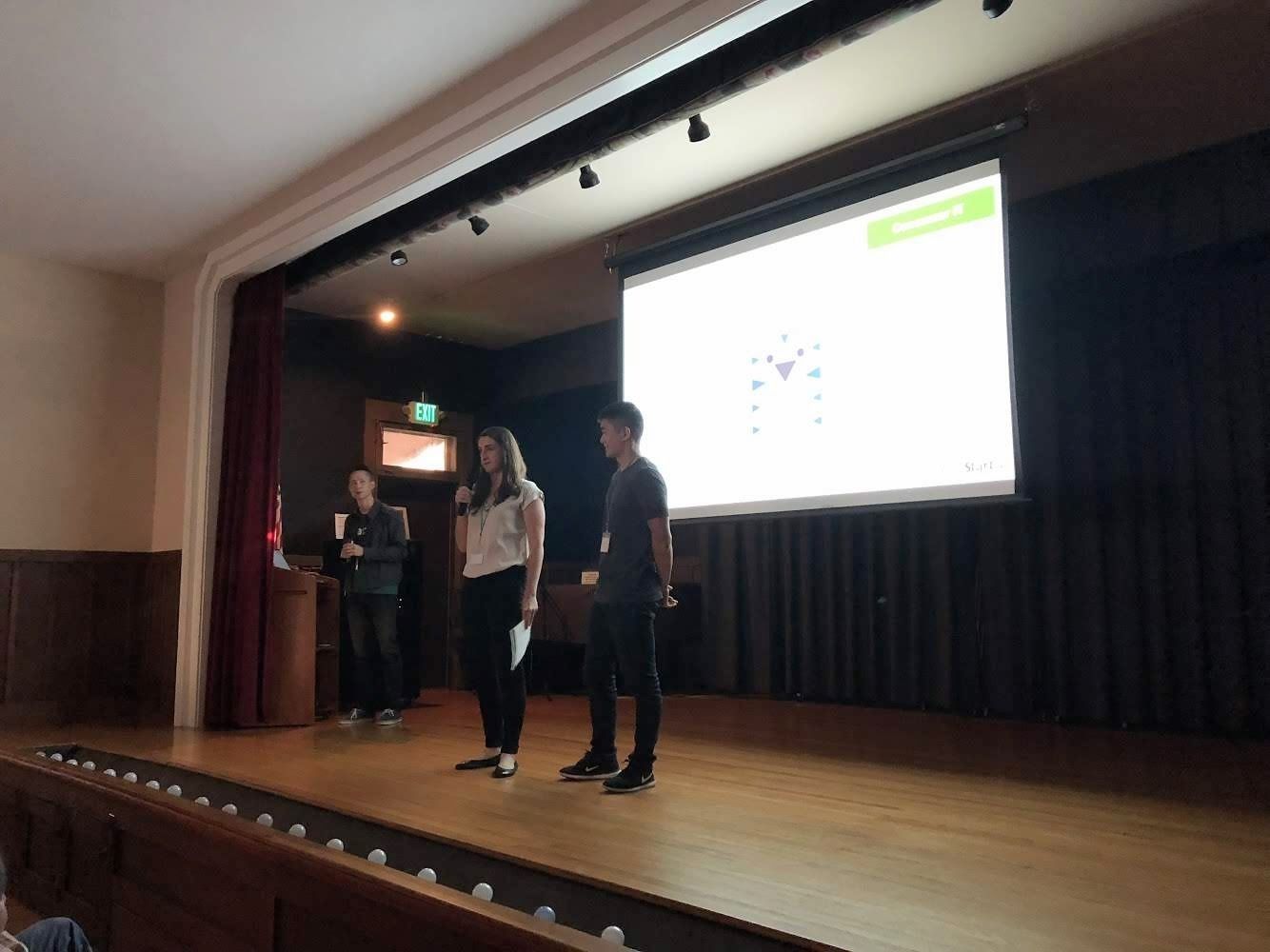
You can also find accelerator groups based on your identity. There are support groups to connect with other female, BIPOC, LGBTQ, and first-generation founders with each other, often started by a passionate community leader that serves as a mentor and role model. My cofounder, Eric Lu, is a first-generation entrepreneur and spoke at an event for Chinese immigrant founders
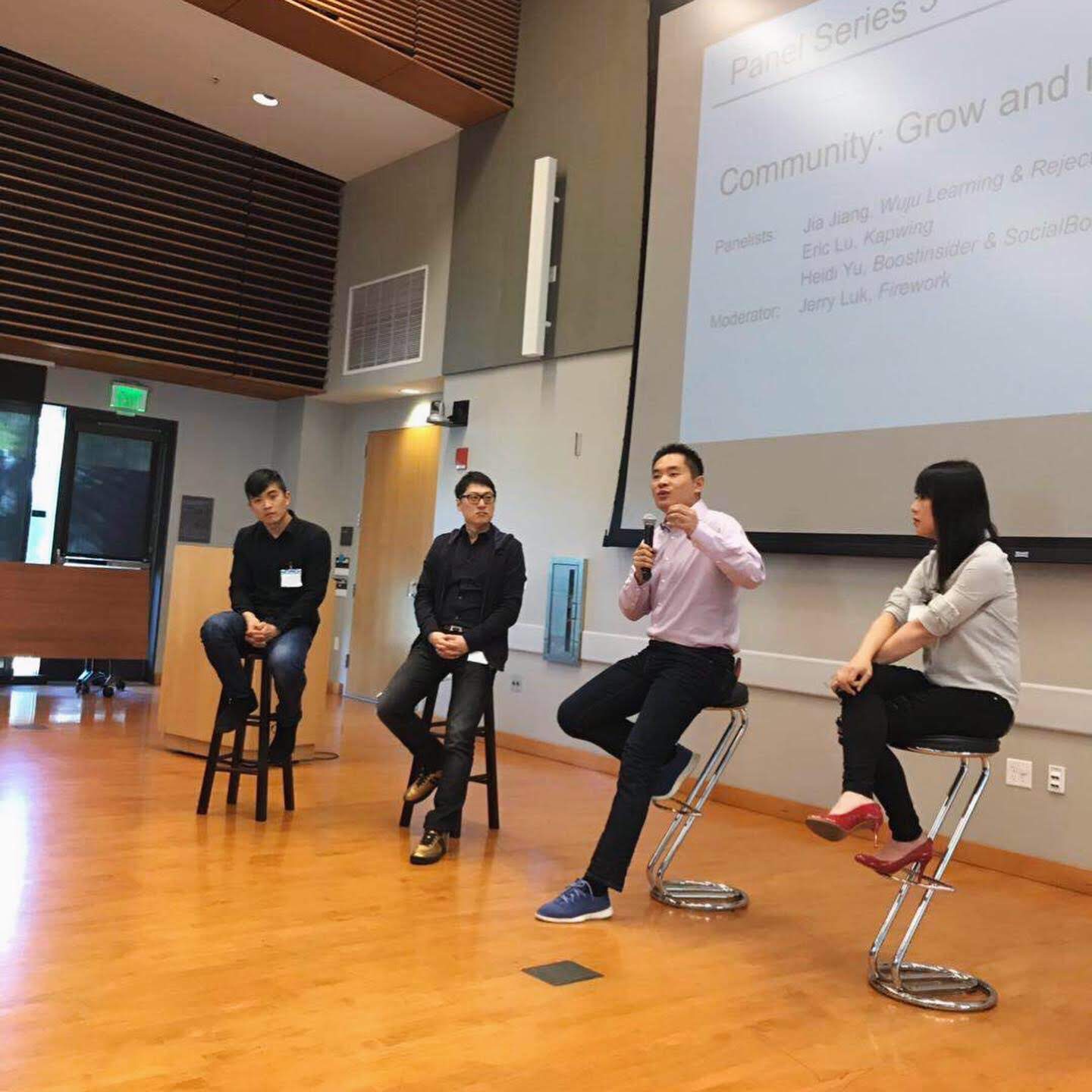
If you’ve worked for a FAANG company, there are often communities of former employees who left to chart their own path. I’ve been to several women-in-tech events, and the Xoogler community has been a foundation for Eric and I since we started out. During the pandemic, Google for Startups hosted a program to accelerate female founders that Kapwing joined.
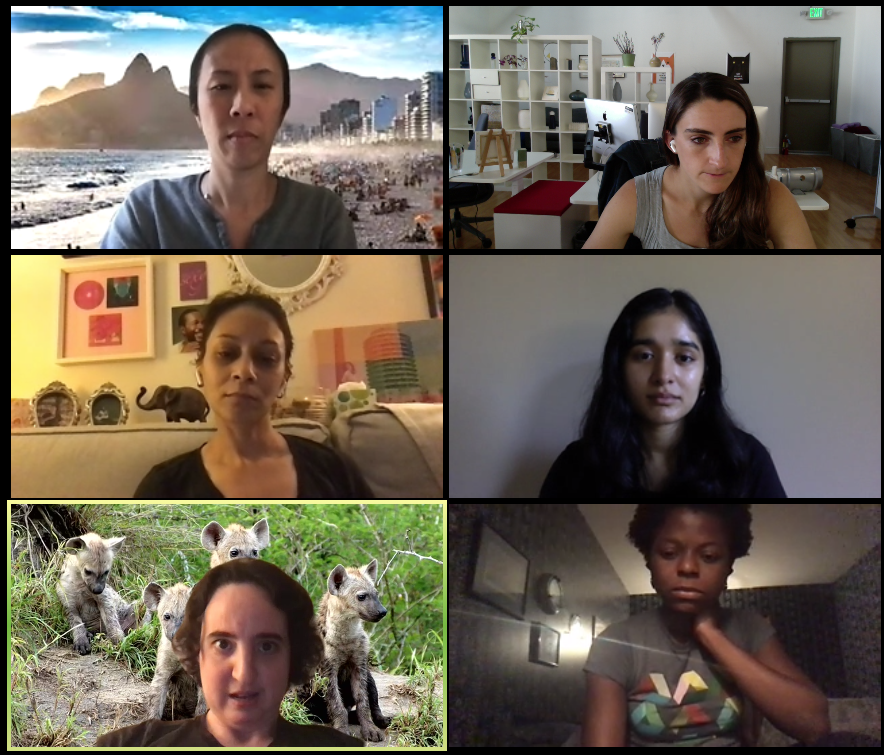
#4) Digital Communities
When we started Kapwing, we connected with other people in the IndieHacker community and wrote stories for Hackernoon. Some of our blog posts did well on HackerNews, and we launched several products on Product Hunt. Occasionally, you can find founder communities through software products that serve founders, like Brex and Stripe. We got involved with the perks organized by Stripe Atlas, went to events by Silicon Valley Bank and AWS, spoke on and attended founder panels, and joined the DemandCurve and Femstreet Slack channel. During the pandemic, these virtual communities became important sources of support.

Takeaway: To find good digital communities, keep your eye out for startup newsletters, podcasts, and media outlets that you find useful. Many of them are connected to some online community for entrepreneurs.
#5) DIY Communities
The best way to join a community is to build one yourself! Bring founders that you meet together for socializing and startup chatter. I’ve hosted a female engineers dinner party at our office which was as simple as ordering a party platter.
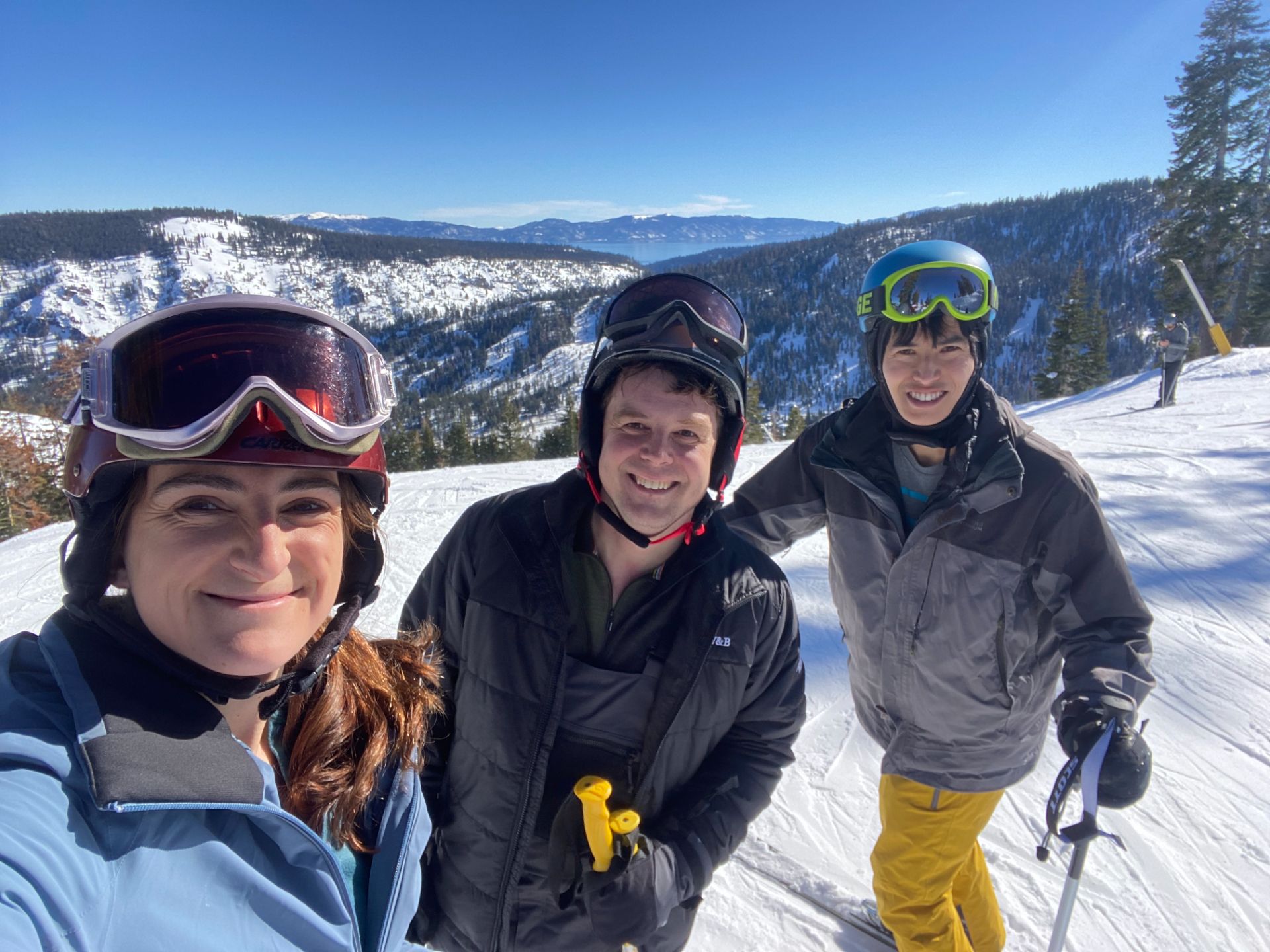
I’m inspired by the people in the startup ecosystem who have a knack for bringing people together organically. Erik Torenberg is the start role model in this vein; in 2019, he hosted a social “unconference,” a weekend retreat for 40 people in Tahoe to mix and learn, for a social community called Rise and started OnDeck, now worth hundreds of millions of dollars, as a causal happy hour for people in his network. My role models know how to host a great event and make connections between people, a skill that creates community around them.
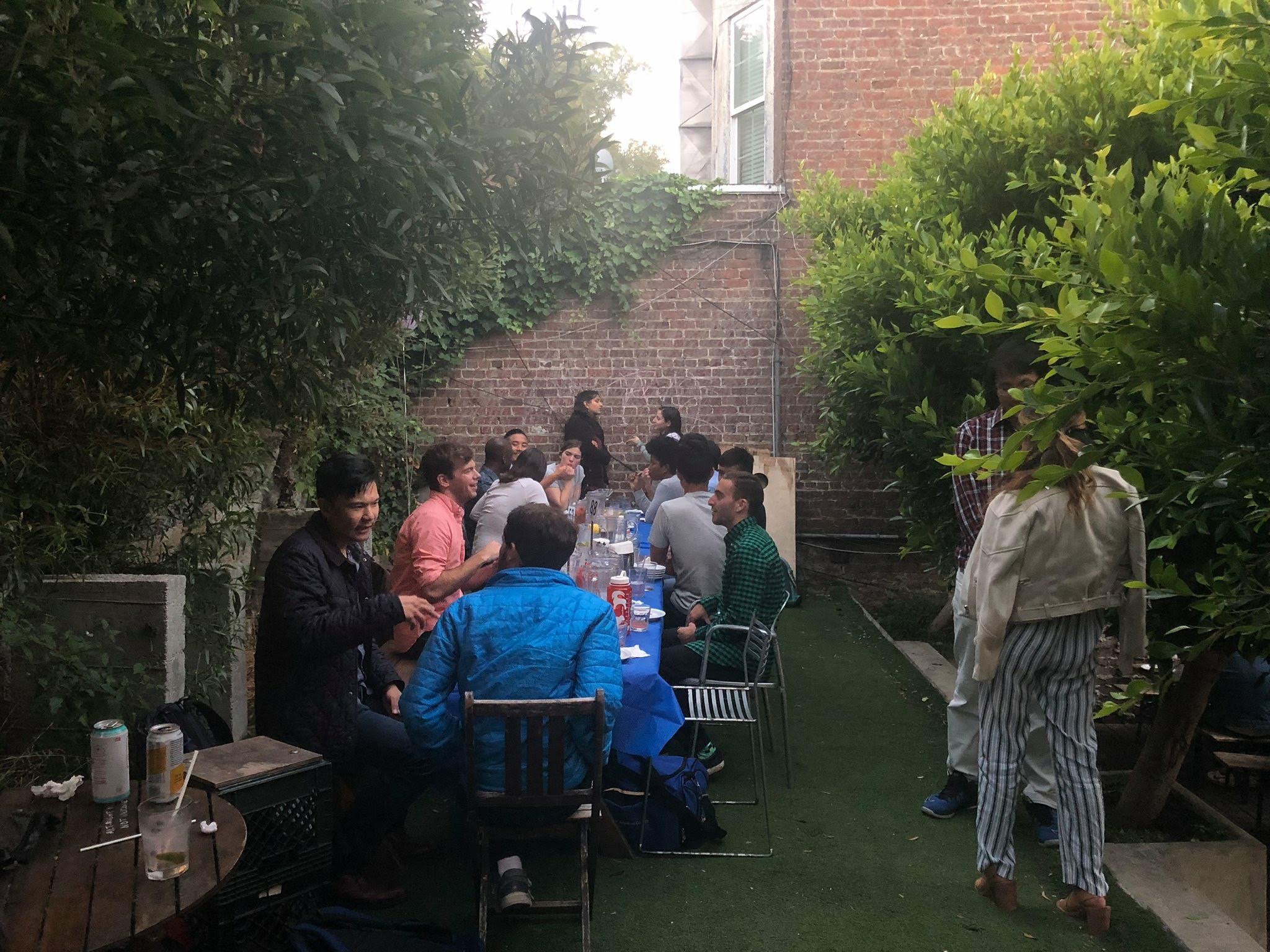
Takeaway: Most entrepreneurs feel lonely; you’re not the only one. The best way to nurture relationships and to give back is to host events, make introductions, keep conversations going with no agenda, do favors, and keep meeting new people. This generosity will create organic connections and pay off many times over.
#6) Books and Blogs
Reading about another entrepreneur’s journey isn’t the same as befriending someone and talking to them live, but it does help you feel less isolated. Since starting Kapwing, I’ve read The Hard Thing About Hard Things, The Messy Middle, Shoe Dog, Let My People Go Surfing, Creativity Inc, and a bunch of other tactical startup books. We also follow HackerNews and some other indie-founder blogs, like Canny and Letterdrop. In some cases, we’ve met the authors of our favorite newsletters and startup blogs through Twitter and article comments. I'd encourage you to subscribe to this blog too and reach out to me over email if you want to connect and talk further.
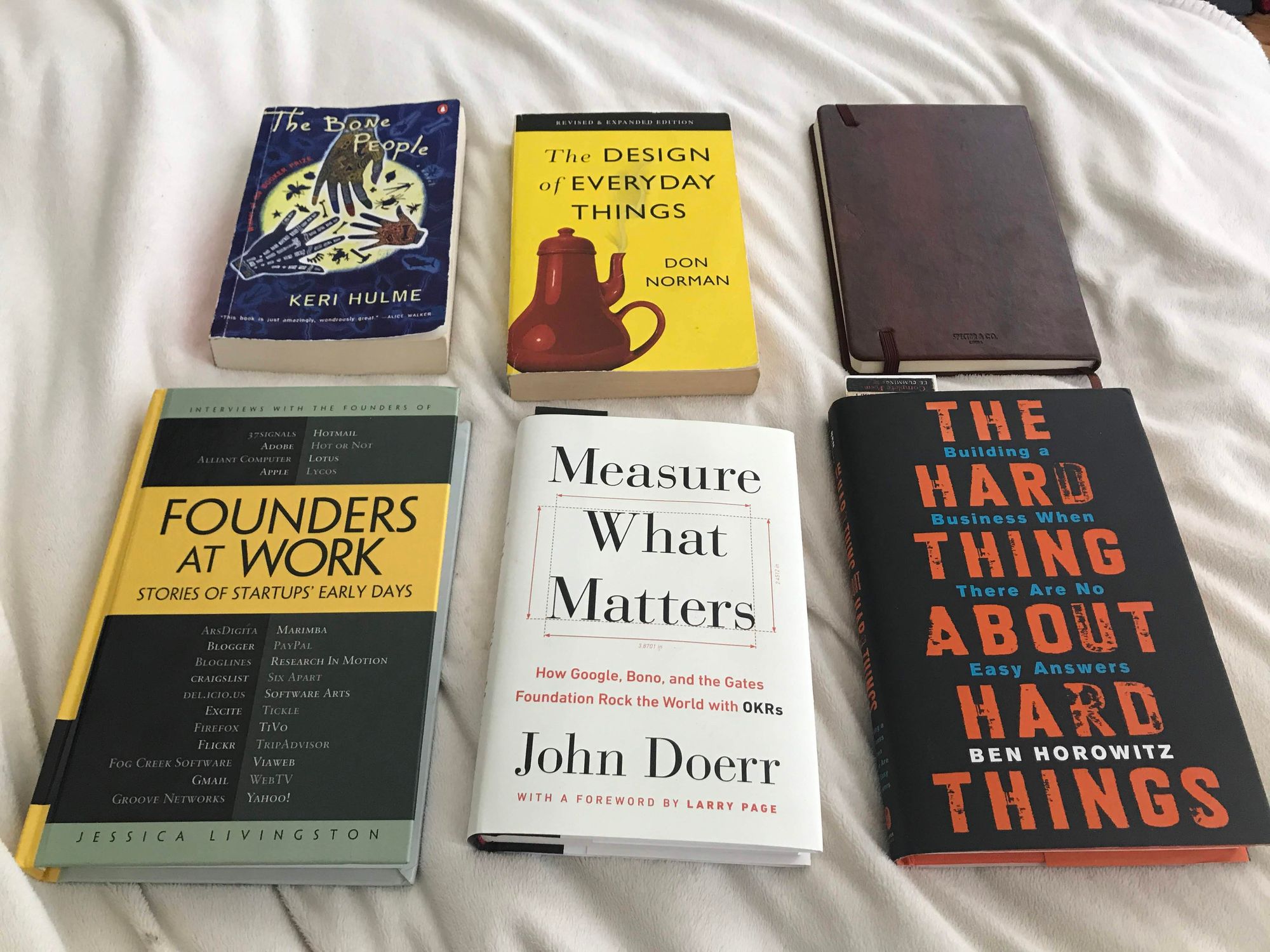
Takeaway: Keep reading and learning! Browsing startup learnings and sharing your own blog posts helps you stay in touch with other entrepreneurs.
#7) Formal Communities
At various points of the company, I've considered joining more formal communities that bring founders together. Forbes 30 Under 30, for example, does an annual gathering, and YPO (Young Presidents Organization) has chapters across the country. Often, these exclusive groups have membership requirements, and new members must get a referral from an insider.
I resisted these groups for a long time because of the steep membership fees that come along with joining. However, earlier this year, I joined a growth program called Leaders in Tech that I've enjoyed as a both an intentional learning opportunity and a way to network with other founders. This program has both pros and cons (will save this for another blog post) and was quite expensive, but it's an option if you don't have organic networking opportunities to connect with and are flush with cash.
Conferences can also provide a vehicle for meeting people. I attended a few in the early days of Kapwing - Startup Grind (all entrepreneurs), Visual1st (an industry conference), and Social Media Marketing World. Overall, I felt that conferences are a good experience if you can get a free ticket, but not worth a steep attendance price tag in addition to the time.
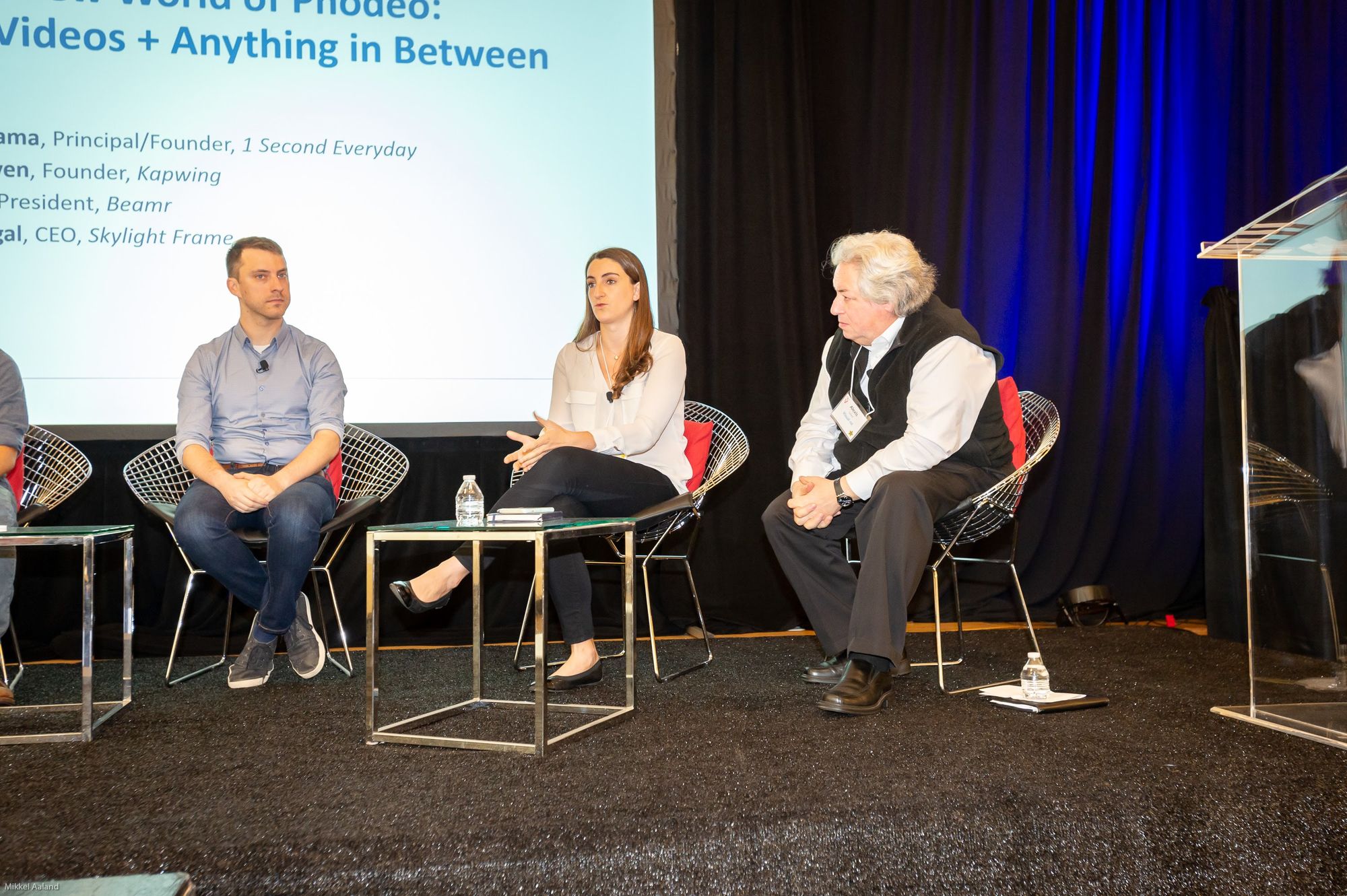
Takeaway: Companies will provide community when there is a demand. Consider founder clubs or membership groups for a more formal network.
Conclusion
If you're an early-stage founder, surrounding yourself with other sharp entrepreneurs is a tremendous competitive advantage. You can better see around corners, close deals, recruit candidates, and stay afloat through the emotional rollarcoaster of startups. I hope this article inspires others on how to spend time building a community of founders and spread the love.









